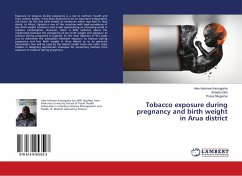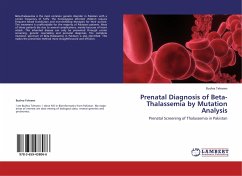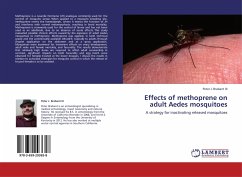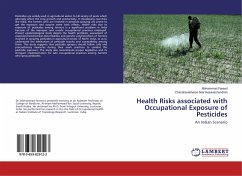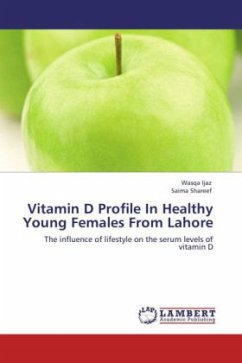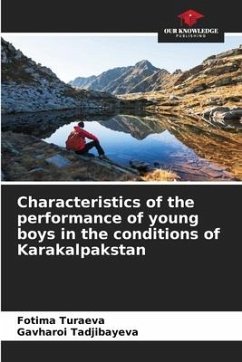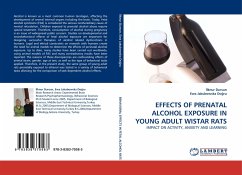
EFFECTS OF PRENATAL ALCOHOL EXPOSURE IN YOUNG ADULT WISTAR RATS
IMPACT ON ACTIVITY, ANXIETY AND LEARNING
Versandkostenfrei!
Versandfertig in 6-10 Tagen
32,99 €
inkl. MwSt.

PAYBACK Punkte
16 °P sammeln!
Alcohol is known as a most common human teratogen, affecting the development of several internal organs including the brain. Today, Fetal alcohol syndrome (FAS) is considered the serious nonhereditary cause of mental retardation. Children exposed to prenatal alcohol abuse require special treatment. Therefore, consumption of alcohol during pregnancy is an issue of widespread public concern. Studies on developmental and neurobehavioral effects of fetal alcohol exposure are important for designing successful therapies of alcohol related dysfunctions in humans. Legal and ethical constraints on res...
Alcohol is known as a most common human teratogen, affecting the development of several internal organs including the brain. Today, Fetal alcohol syndrome (FAS) is considered the serious nonhereditary cause of mental retardation. Children exposed to prenatal alcohol abuse require special treatment. Therefore, consumption of alcohol during pregnancy is an issue of widespread public concern. Studies on developmental and neurobehavioral effects of fetal alcohol exposure are important for designing successful therapies of alcohol related dysfunctions in humans. Legal and ethical constraints on research with humans create the need for animal models to determine the effects of perinatal alcohol exposure. Up to date, many studies have been carried out worldwide, using animal models of FAS and many contradictory results have been reported. The reasons of these discrepancies are confounding effects of animal strain, gender, age at test, as well as the type of behavioral tasks applied. Therefore, in the present study, the same group of young adult rats prenatally exposed to ethanol was tested in a variety of behavioral tasks allowing for the comparison of task-dependent alcohol effects.




